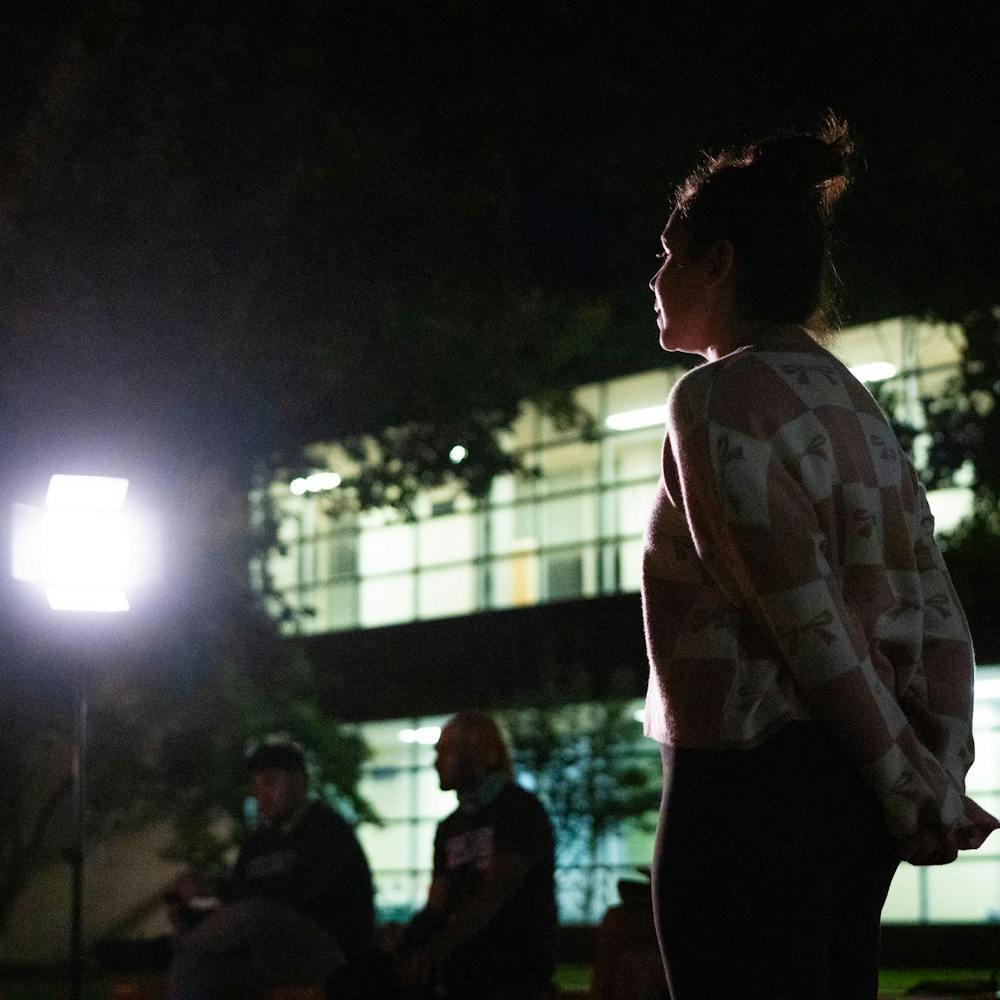The new Wharton Center season is bringing along a new face to meet at the helm of the theater: Eric Olmscheid.
“I'm just really ecstatic about the opportunity to be here and encouraged by our legacy … our 40-year history of bringing world class performing arts here to the Lansing community and Michigan State," Olmscheid said. "Every time I turn around and look at what we've done, and the impact we made in this community, I'm just really encouraged by where we've gone and where we can go into the future.”
Olmscheid was raised in central Minnesota. His passion for theater stems from elementary school — singing in the church choir and participating in plays and musicals all the way up to high school.
"I'm thankful that my brother … had a passion for farming and wanted to take over the family farm, because that's not what I wanted to do,” Olmscheid said. “I want to do something in the arts and so my brother took over the farm, and then I went to school and studied music, and have continued to find ways to kind of bring music and theater into my life and really use the arts as a tool to engage the community.”
Olmscheid studied to be a music teacher in college until he realized in his senior year he would rather spread the arts rather than teach them.
He is most excited to manage the Broadway shows the theater is famous for, as well as its commitment to arts education through showcasing diverse performing arts experiences. He is ready to expand the audience for these shows.
"Some (students) love what we do and are arts inclined and are coming through our doors right now,” Olmscheid said. “But, many of them may not have a relationship with Wharton Center. How do we get them in the door? More importantly, how do we have them connect with an arts experience that's relevant to their lives?”
He said this does not mean convincing students to only go see Broadway or specific shows, but focusing on how the Wharton builds programs and pathways to represent younger people in this space.
“I'm interested in listening and not assuming," Olmscheid said. "It's just one of the many pathways we need to do not only for MSU college students, but also for the community at large and especially segments of the community who are not historically represented in our audience base.”
Olmscheid said that analyzing the art young people consume on a regular basis can give the Wharton insight on how to program these seasons.
"We come together in the community around arts experiences, because it's core to who we are,” Olmscheid said. “Day to day, we have art in our life — it might be music you're listening to, a television program that you're passionate about, or a poster of an artist that you love hanging in your apartment. It's really an important piece for us to understand that the arts are everywhere around us formally and informally.”
While the Wharton offers more formal opportunities to connect with the arts, Olmscheid wants to explore art beyond what is happening in the Cobb Great Hall — connecting with what art matters to the community.
Olmscheid also said he is hungry to know how the Wharton can be better for the public, building a relevance factor for the Wharton, explaining that he understands the public will not engage with the theater if they do not see that relevance.
He wants to increase the community accessibility of shows with more programming breaking through pay and opportunity walls.
“We have a really long history of presenting great work … and we've figured out the balance and the mix of how to make all that happen," Olmscheid said. "As we look to the future, I think building programs like our Arts Within Reach program, and expanding that initiative to break down some access barriers related to ticket prices for the community and for students.”
He said he believes athletics and arts are equally as important — even if the fanbase is a little different.
“I don't like to think about it as arts versus athletics,” Olmscheid said. “I think it's arts and athletics. It's connected. If you think about the agility of our football players on the Spartan football team, they are dancers. They are movers. They just are practicing their craft in a very different way than we think about it on our stage."
Support student media!
Please consider donating to The State News and help fund the future of journalism.
Discussion
Share and discuss “Wharton executive director seeks to mirror athletics' audience in theater” on social media.







